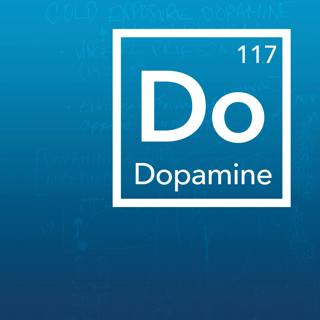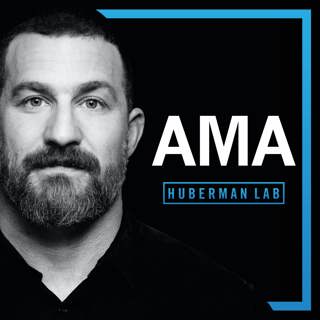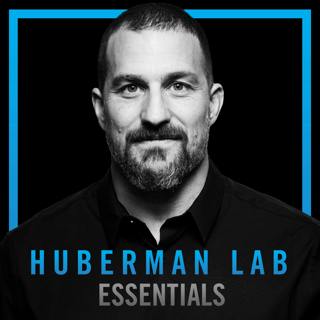
Neuralink & Technologies to Enhance Human Brains | Dr. Matthew MacDougall
In this episode, my guest is Matthew MacDougall, MD, the head neurosurgeon at Neuralink. Dr. MacDougall trained at the University of California, San Diego and Stanford University School of Medicine and is a world expert in brain stimulation, repair and augmentation. He explains Neuralink’s mission and projects to develop and use neural implant technologies and robotics to 1) restore normal movement to paralyzed patients and those with neurodegeneration-based movement disorders (e.g., Parkinson’s, Huntington’s Disease) and to repair malfunctions of deep brain circuitry (e.g., those involved in addiction). He also discusses Neuralink’s efforts to create novel brain-machine interfaces (BMI) that enhance human learning, cognition and communication as a means to accelerate human progress. Dr. MacDougall also explains other uses of bio-integrated machines in daily life; for instance, he implanted himself with a radio chip into his hand that allows him to open specific doors, collect and store data and communicate with machines and other objects in unique ways. Listeners will learn about brain health and function through the lens of neurosurgery, neurotechnology, clinical medicine and Neuralink’s bold and unique mission. Anyone interested in how the brain works and can be made to work better ought to derive value from this discussion. For the full show notes, visit hubermanlab.com. Thank you to our sponsors AG1: https://athleticgreens.com/huberman LMNT: https://drinklmnt.com/hubermanlab Waking Up: https://wakingup.com/huberman Momentous: https://livemomentous.com/huberman Timestamps (00:00:00) Dr. Matthew MacDougall (00:04:22) Sponsors: LMNT & Waking Up (00:07:38) Brain Function & Injury; Brain Tumor Treatment (00:13:52) Frontal Lobe Filter; Sleep Deprivation (00:19:00) Neuroplasticity, Pharmacology & Machines (00:22:10) Neuralink, Neural Implants & Injury, Robotics & Surgery (00:27:52) Sponsor: AG1 (00:32:20) Neocortex vs. Deep Brain (00:36:45) Decoding Brain Signals (00:42:08) “Confidence Test” & Electrical Stimulation; RFID Implants (00:51:33) Bluetooth Headphones & Electromagnetic Fields; Heat (00:57:43) Brain Augmentation & Paralysis (01:02:09) Brain Implants & Peripheral Devices (01:12:44) Brain Machine Interface (BMI), Neurofeedback; Video Games (01:22:13) Improving Animal Experimentation, Pigs (01:33:18) Skull & Injury, Traumatic Brain Injury (TBI) (01:39:14) Brain Health, Alcohol (01:43:34) Neuroplasticity, Brain Lesions & Redundancy (01:47:32) Car Accidents & Driver Alertness (01:50:00) Future Possibilities in Brain Augmentation & BMI; Neuralink (01:58:56) Zero-Cost Support, YouTube Feedback, Spotify & Apple Reviews, Sponsors, Momentous, Social Media, Neural Network Newsletter Disclaimer Learn more about your ad choices. Visit megaphone.fm/adchoices
17 Huhti 20231h 57min

The Science of Healthy Hair, Hair Loss and How to Regrow Hair
In this episode, I explain the biology of hair, hair growth, why hair growth slows and what causes hair to stop growing and/or “fall out.” I discuss the essential role of hair stem cells and other supporting biological factors for healthy hair growth. Then I describe various approaches (mechanical and chemical) to slow hair loss by increasing blood flow to hair stem cells, including minoxidil, tadalafil, PRP, microneedling, Botox and ketoconazole treatments. I also discuss how age-related hormone changes cause hair loss and explain the effectiveness of treatments such as caffeine, saw palmetto, growth hormone, finasteride and dutasteride. For all hair growth options, I describe potential side effects, how soon to expect results and the amount of hair regrowth to expect and I highlight effective combination treatments for hair regrowth even in hair “dead” (bald) zones. For many listeners, thinning, brittle hair, or pattern baldness are a source of anxiety and stress. This episode explains the mechanisms underlying hair regrowth tools and the science behind them so that you can evaluate potential treatments and associated side-effect profiles and select the best one(s) for you. For the full show notes, visit hubermanlab.com. Thank you to our sponsors AG1: https://athleticgreens.com/huberman LMNT: https://drinklmnt.com/hubermanlab Waking Up: https://wakingup.com/huberman Momentous: https://livemomentous.com/huberman Timestamps (00:00:00) Hair (00:04:29) Sponsors: LMNT & Waking Up (00:08:04) Psychological States & Hair (00:13:19) Hair Anatomy & Stem Cells (00:26:05) 3 Phases of Hair Growth (00:32:06) Sponsor: AG1 (Athletic Greens) (00:36:55) Minoxidil & Blood Flow (00:45:37) Increase Blood Flow: Massage, Tadalafil, Platelet-Rich Plasma (PRP), Microneedling (00:56:10) Microneedling, Minoxidil & “Dead Zones” (01:01:25) Botox Treatments (01:06:27) Androgens, Hair Growth & Pattern Hair Loss; Scalp vs. Beard Hair (01:15:46) Topical Caffeine & Slowing Hair Loss (01:21:06) IGF-1: Growth Hormone & Sermorelin; Insulin Sensitivity: Myo-Inositol (01:25:52) Iron & Hair Growth (01:27:04) 5-Alpha Reductase & Saw Palmetto; Curcumin (01:33:22) Ketoconazole & Offsetting Hair Loss (01:38:46) Topical & Oral Finasteride (01:51:00) Post- Finasteride Syndrome (01:56:01) Dutasteride (01:58:53) Mechanical & Chemical Stimulation for Hair Growth (02:02:46) Zero-Cost Support, YouTube Feedback, Spotify & Apple Reviews, Sponsors, Momentous, Social Media, Neural Network Newsletter Disclaimer Learn more about your ad choices. Visit megaphone.fm/adchoices
10 Huhti 20232h

Control Stress for Healthy Eating, Metabolism & Aging | Dr. Elissa Epel
In this episode, my guest is Elissa Epel, Ph.D., professor and vice chair of the department of psychiatry at the University of California San Francisco (UCSF) and the author of a new book entitled "The Stress Prescription." We discuss her work showing how stress impacts mood, eating behavior, mental health, physical health, and aging. She explains stress intervention tools using “top-down” techniques (e.g., radical acceptance, mindfulness, reframing), body-based methods (e.g., breathwork) including the Wim Hof Method, exercise, meditation, body scans, and environmental shifts proven to help people cease unhealthy rumination patterns. We discuss how stress can positively impact psychology and sense of purpose, how stress affects cellular aging, how our narratives of stressful events impact our mood and biology, and how to effectively reframe stress. She explains science-based techniques to break stress-induced cycles of craving and overeating and thereby improve insulin sensitivity and metabolic health. Dr. Epel provides a wide range of tools shown to be effective in reducing stress and improving various aspects of our health. For the full show notes, visit hubermanlab.com. Thank you to our sponsors AG1: https://athleticgreens.com/huberman LMNT: https://drinklmnt.com/hubermanlab Waking Up: https://wakingup.com/huberman Momentous: https://livemomentous.com/huberman Timestamps (00:00:00) Dr. Elissa Epel (00:02:33) Sponsors: LMNT & Waking Up (00:06:18) Stress; Effects on Body & Mind (00:12:50) Tools: Overthinking & Stress (00:15:37) Acute, Moderate & Chronic Stress, Breathing (00:21:23) Stress Benefits, Aging & Cognition; Stress Challenge Response (00:27:23) Sponsor: AG1 (Athletic Greens) (00:32:19) Tool: Shifting Stress to Challenge Response, “Stress Shields” (00:37:400 Stress, Overeating, Craving & Opioid System (00:48:55) Tools: Breaking Overeating Cycles, Mindfulness (00:54:44) Soda & Sugary Drinks (01:00:51) Smoking, Processed Food & Rebellion (01:06:47) Tools: Mindfulness, Pregnancy & Metabolic Health (01:14:11) Body Scan & Cravings (01:17:28) Tool: Meditation & Aging; Meditation Retreats (01:23:35) Meditation, Psychedelics & Neuroplasticity (01:26:02) Mitochondrial Health, Stress & Mood (01:29:49) Chronic Stress & Radical Acceptance, “Brick Wall” (01:37:57) Tool: Control, Uncertainty (01:45:25) Stress Management, “Skillful Surfing” (01:50:25) Narrative, Purpose & Stress (01:52:49) Breathwork, Wim Hof Method, Positivity & Cellular Aging (02:03:11) Zero-Cost Support, YouTube Feedback, Spotify & Apple Reviews, Sponsors, Momentous, Social Media, Neural Network Newsletter Disclaimer Learn more about your ad choices. Visit megaphone.fm/adchoices
3 Huhti 20232h 1min

Leverage Dopamine to Overcome Procrastination & Optimize Effort
In this episode, I explain how dopamine dynamics — meaning changes and interactions between our baseline and peak levels of dopamine drive our cravings and sense of motivation. I also explain how to leverage dopamine dynamics to overcome procrastination. I cover behavioral, cognitive, nutrition-based and supplementation-based tools to optimize baseline and peak dopamine levels to ensure a persistently motivated state. I also discuss how to boost motivation when you are in a rut, why you might not want to stack behaviors/substances that spike dopamine and how to build and maintain a “growth mindset” for pursuing goals of any kind. Dopamine is an incredibly powerful neuromodulator involved in basic functions (e.g., hunger, romantic attraction, etc.) and feats of cognitive and physical performance; by understanding the dynamics of dopamine, listeners ought to be better positioned to overcome procrastination, maintain motivation, and improve confidence. For the full show notes, visit hubermanlab.com. Thank you to our sponsors AG1: https://athleticgreens.com/huberman LMNT: https://drinklmnt.com/hubermanlab Waking Up: https://wakingup.com/huberman Momentous: https://livemomentous.com/huberman Timestamps (00:00:00) Dopamine (00:02:48) Sponsors: LMNT & Waking Up (00:06:27) Dopamine Brain Circuits (00:14:53) Goals & Addiction (00:17:13) Dopamine Dynamics, “Wave Pool” analogy (00:20:28) Craving, Motivation, Pursuit & Reward Prediction Error (00:24:46) Sponsor: AG1 (Athletic Greens) (00:29:40) Feedback Cues & Reward Contingent Learning, “Scoreboard” (00:37:40) Addiction; Pleasure & Pain Imbalance (00:44:55) Dopamine Release & Addictive Substances/Behaviors (00:50:43) Addiction Recovery, Binding Behaviors (00:53:25) Tools: Maintain Baseline Dopamine Levels (01:03:26) Tool: Deliberate Cold Exposure & Dopamine (01:09:38) Prescriptions & Supplementation: L-Tyrosine, Mucuna Pruriens (01:18:58) Dopamine Trough Recovery, Postpartum Depression (01:23:31) Dopamine Dynamics, “Dopamine Stacking”; Intrinsic Motivation (01:38:10) Making Effort the Reward, Growth Mindset (01:41:49) Tool: Overcome Procrastination (01:52:16) Tool: Meditation & Procrastination (01:57:01) Zero-Cost Support, YouTube Feedback, Spotify & Apple Reviews, Sponsors, Momentous, Neural Network Newsletter, Social Media Disclaimer Learn more about your ad choices. Visit megaphone.fm/adchoices
27 Maalis 20231h 54min

AMA #5: Intrusive Thoughts, CGMs, Behavioral Change, Naps & NSDR
Welcome to a preview of the fifth Ask Me Anything (AMA) episode, part of the Huberman Lab Premium subscription. The Huberman Lab Premium subscription was launched for two main reasons. First, it was launched in order to raise support for the standard Huberman Lab podcast channel — which will continue to come out every Monday at zero-cost. Second, it was launched as a means to raise funds for important scientific research. A significant portion of proceeds from the Huberman Lab Premium subscription will fund human research (not animal models) selected by Dr. Huberman, with a dollar-for-dollar match from the Tiny Foundation. Subscribe to Huberman Lab Premium at https://hubermanlab.com/premium Timestamps (00:00:00) Introduction (00:01:53) Strategies for Abstaining From Addictive Thoughts and Narratives (00:21:07) Huberman Lab Premium In the full AMA episode, we discuss: Continuous Glucose Monitors (CGMs) How to Build Good Habits Alongside a Partner Who Challenges Them? Short Naps vs. Non-Sleep Deep Rest (NSDR) for Replenishing Energy and Dopamine Title Card Photo Credit: Mike Blabac Disclaimer Learn more about your ad choices. Visit megaphone.fm/adchoices
24 Maalis 202323min

Improve Vitality, Emotional & Physical Health & Lifespan | Dr. Peter Attia
In this episode, my guest is Peter Attia, M.D. He completed his medical and advanced training at Stanford University School of Medicine, Johns Hopkins School of Medicine and the National Institutes of Health (NIH). Dr. Attia is host of the health and medicine podcast, The Drive, and the author of a new book, “Outlive: The Science & Art of Longevity,” which examines disease prevention and healthy aging, including emotional health. He explains the leading causes of death worldwide and how to measure one’s risk of death and mitigate each risk factor. Dr. Attia shares how, in addition to blood-based markers of lipids and hormones, there are behavioral measures and interventions, and key aspects of emotional health (i.e., relationships, emotional stability, purpose, etc.) that fundamentally impact our physical health and longevity, and how to assess and adjust our emotional health. This episode is rich with actionable information related to disease screening and biomarker testing, nutritional, exercise, behavior and prescription-based tools that area useful to all people regardless of age, male or female, and that can significantly improve vitality, health and lifespan. For the full show notes, visit hubermanlab.com. Thank you to our sponsors AG1: https://athleticgreens.com/huberman LMNT: https://drinklmnt.com/hubermanlab Waking Up: https://wakingup.com/huberman Momentous: https://livemomentous.com/huberman Timestamps (00:00:00) Dr. Peter Attia (00:03:39) Sponsor: LMNT (00:07:34) Lifespan vs. Healthspan (00:10:54) “4 Horseman of Death”, Diseases of Atherosclerosis (00:14:44) Tool: Hypertension & Stroke, Blood Pressure Testing (00:23:14) Preventing Atherosclerosis, Smoking & Vaping, Pollution (00:28:33) Sponsor: AG1 (00:33:29) Cholesterol, ApoB (00:42:21) Cholesterol Levels, LDL & ApoB Testing (00:49:29) ApoB Levels & Atherosclerosis, Causality (01:01:06) ApoB Reduction, Insulin Resistance, Statins, Ezetimibe, PCSK9 Inhibitors (01:12:30) Monitoring ApoB (01:18:30) Reducing Blood Pressure, Exercise & Sleep (01:20:50) High Blood Pressure & Kidneys (01:23:11) Alcohol, Sleep & Disease Risk (01:31:21) Cancer & Cancer Risks: Genetics, Smoking & Obesity (01:39:47) Cancer Screening & Survival (01:44:17) Radiation Risks, CT & PET Scans (01:48:48) Environmental Carcinogens (01:52:11) Genetic & Whole-Body MRI Screening, Colonoscopy (01:58:47) Neurodegenerative Diseases, Alzheimer’s Disease, ApoE (02:08:08) Alzheimer’s Disease & Amyloid (02:13:58) Interventions for Brain Health, Traumatic Brain Injury (TBI) (02:21:26) Accidental Death, “Deaths of Despair”, Fentanyl Crisis (02:31:20) Fall Risk & Stability, 4 Pillars of Strength Training (02:41:05) Emotional Health (02:53:45) Mortality & Preserving Relationship Quality (03:02:20) Relationships vs. Outcomes, Deconstructing Emotions (03:09:34) Treatment Centers, Emotional Processing & Recovery (03:16:34) Tool: Inner Monologue & Anger, Redirecting Self-Talk (03:27:37) Zero-Cost Support, YouTube Feedback, Spotify & Apple Reviews, Sponsors, Momentous, Social Media, Neural Network Newsletter Disclaimer Learn more about your ad choices. Visit megaphone.fm/adchoices
20 Maalis 20233h 25min

Intermittent Fasting to Improve Health, Cognition & Longevity | Dr. Satchin Panda
In this episode, my guest is Satchin Panda, PhD, professor and the director of the Regulatory Biology Laboratories at the Salk Institute for Biological Studies. We discuss his lab’s discovery that “time-restricted eating” (TRE) aka intermittent fasting, is beneficial effects for metabolic health and longevity. Dr. Panda explains how TRE, and also longer fasts, can positively impact obesity, diabetes, cardiovascular health, age-related chronic diseases, and improve mood and cognitive performance. He also describes how the timing of eating, light exposure and exercise that ~50% of all people engage in, negatively impacts their health and explains how specific simple adjustments to these can positively shift their subjective feelings of health and biomarkers of cardiovascular function, glucose regulation and metabolism. We discuss how our circadian behaviors, which include our patterns of eating, sleeping and socializing, have an enormous impact on our biology, mood and health and how by simply confining our calorie consumption to a semi-regular daily window, can positively impact our physical health, mental health and longevity. For the full show notes, visit hubermanlab.com. Thank you to our sponsors AG1: https://athleticgreens.com/huberman LMNT: https://drinklmnt.com/hubermanlab Waking Up: https://wakingup.com/huberman Momentous: https://livemomentous.com/huberman Timestamps (00:00:00) Dr. Satchin Panda (00:03:18) Sponsor: LMNT (00:07:24) Time-Restricted Eating (TRE), Calorie Restriction (CR) & Health (00:14:38) Mealtimes & Circadian Clock (00:21:34) Circadian Rhythm, Meal Anticipation, Digestion (00:25:28) Breaking a Fast, Burning Fat (00:28:45) Sponsor: AG1 (00:34:04) CR, Time Restricted Eating, Circadian Rhythm & Longevity (00:47:20) Gender, Hormones & CR; Relative Energy Deficient in Sports (REDS) (00:52:40) Physical Activity, Nutrition & Feeding Window (00:59:04) Nutrition Timing, Quality & Quantity; Low- Carbohydrate Diet (01:03:00) Caffeine, Nighttime Socialization, Fire, Breakfast (01:16:20) Circadian Rhythm, “Night Owls” & Genetics (01:26:37) Morning vs. Nighttime Discussions, “Me Time” (01:30:08) Light Sensitivity & “Night Owls”; Puberty, Melatonin (01:36:05) Shift Workers, Health & Disease (01:45:43) Artificial Lights, Young Adults & Sleep, Metabolic Dysfunction (01:50:59) Firefighters, Sleep & TRE; Cardiovascular Health, Blood Glucose (02:05:18) Shift Workers & Sleep; Alcohol & Caffeine (02:09:15) 12- Hour Feeding Window for Adults & Children, Sleep (02:22:10) Meal Timing (02:25:20) “Complete Fast”, Longer Fasts, Physical Health & Mental Health (02:28:12) “Fat Fasting”, Blood Glucose & Insulin (02:31:57) Fasting, Metformin, Rapamycin & Longevity; Human Applicability? (02:39:14) Circadian Rhythm & Metabolism (02:41:36) Ontime Health App, Circadian Clock App (02:46:17) Zero-Cost Support, Spotify & Apple Reviews, YouTube Feedback, Sponsors, Momentous, Social Media, Neural Network Newsletter Disclaimer Learn more about your ad choices. Visit megaphone.fm/adchoices
13 Maalis 20232h 44min

How to Optimize Your Water Quality & Intake for Health
In this episode, I discuss our body’s most vital and essential nutrient—water. I explain the structure of water and how it is used by the cells and tissues of our body, how much water we each need to drink and when in order to optimize our mental focus and physical performance; and I include how exercise, humidity, heat, and caffeine affect our hydration needs. I explain how temperature and pH influence water’s physical properties and if there is any scientific basis for drinking so-called “pH water” or “alkalized water” to improve health. I explain how to test your tap water for contaminants (e.g., endocrine disruptors) and the documented problems with fluoride in drinking water. I provide options for filtering drinking water and describe different water types (e.g., reverse osmosis, hydrogen-enriched, electrolyzed reduced, deuterium depleted, etc.). Since the human body is mostly water (55-80% depending on one’s age) and water has essential roles in health, disease and cellular function, everyone ought to benefit from understanding how best to clean our tap water, hydrate effectively and in some cases, adjust the type of water we drink to allow our brain and body to function optimally in regard to health and performance. For recommended water filters, tests and the full show notes, please visit hubermanlab.com. Thank you to our sponsors AG1: https://athleticgreens.com/huberman LMNT: https://drinklmnt.com/hubermanlab Waking Up: https://wakingup.com/huberman Momentous: https://livemomentous.com/huberman Timestamps (00:00:00) Water (00:03:33) Tool Deliberate Cold Exposure, Immersion & Showers Mood & Fat Loss (00:15:42) Sponsor: LMNT (00:19:27) Water: Physical Properties & Chemistry (00:26:32) Bonds & Water Phases, “Structured Water” (00:32:38) Sponsor: AG1 (00:34:07) Body, Cells & Water (00:37:37) Water as a Solvent, Temperature & pH (00:41:49) Water Transport in Cells, Aquaporin Channels (00:49:46) Alkaline/pH Water; Temperature, pH & Water Transport (00:55:14) Water Cellular Function, Reactive Oxygen Species (ROS) & Antioxidants (01:02:38) Tool: Baseline Hydration (01:11:35) Tool: Hydration & Exercise, Galpin Equation (01:15:40) Tool: Hydration, Sauna, Humidity & Sweat; Thirst, Caffeine (01:19:15) Hydration; Cognitive & Physical Performance (01:23:53) Tool: Water Filtration; Nighttime Urination (01:29:35) Tap Water Tests, Disinfection Byproducts (DBPs), Fluoride & Thyroid Health (01:37:18) Tool: Water Filters (01:44:18) Tool: Resting Tap Water & Sediment (01:48:13) Tool: “Hard Water”; Magnesium, Calcium & Cardiovascular Health (01:53:40) Water Temperature (01:56:42) Water Types: Distilled, Reverse Osmosis, Hydrogen-Enriched (02:03:26) Hydrogen-Enriched Water, Magnesium, Optimize Hydration (02:11:13) Tool: Molecular Hydrogen Tablets, Water pH (02:14:05) Structured Water (02:16:39) Tool: Water Pipes, Faucet Filter (02:19:42) Zero-Cost Support, Spotify & Apple Reviews, YouTube Feedback, Sponsors, Momentous, Social Media, Neural Network Newsletter Disclaimer Learn more about your ad choices. Visit megaphone.fm/adchoices
6 Maalis 20232h 17min





















